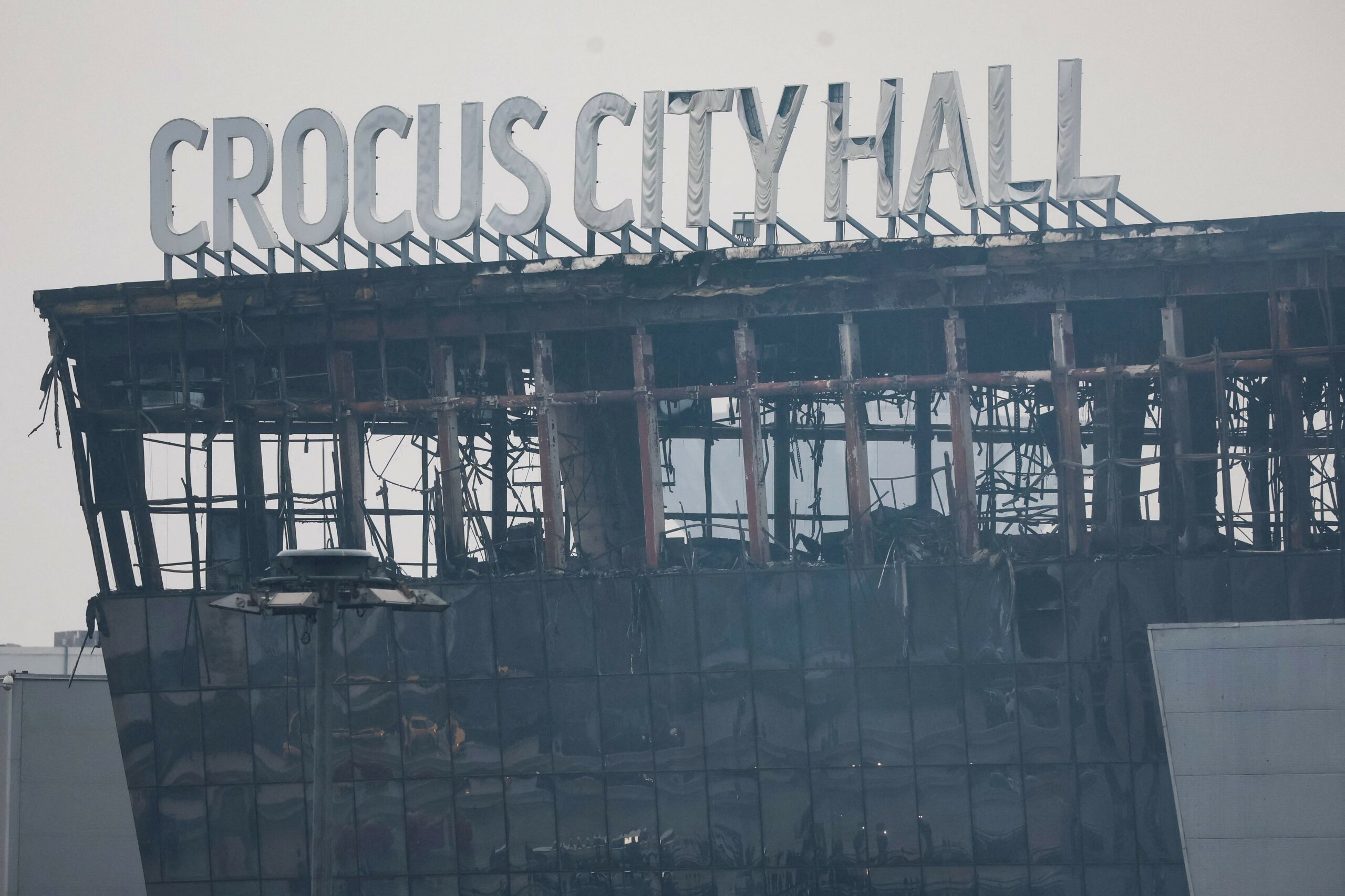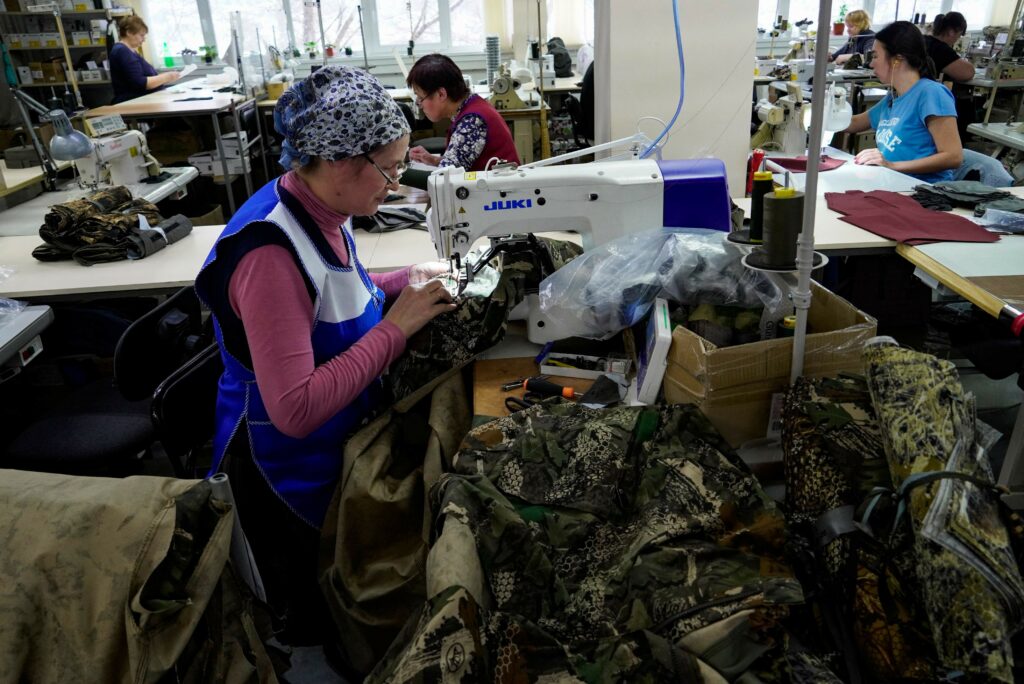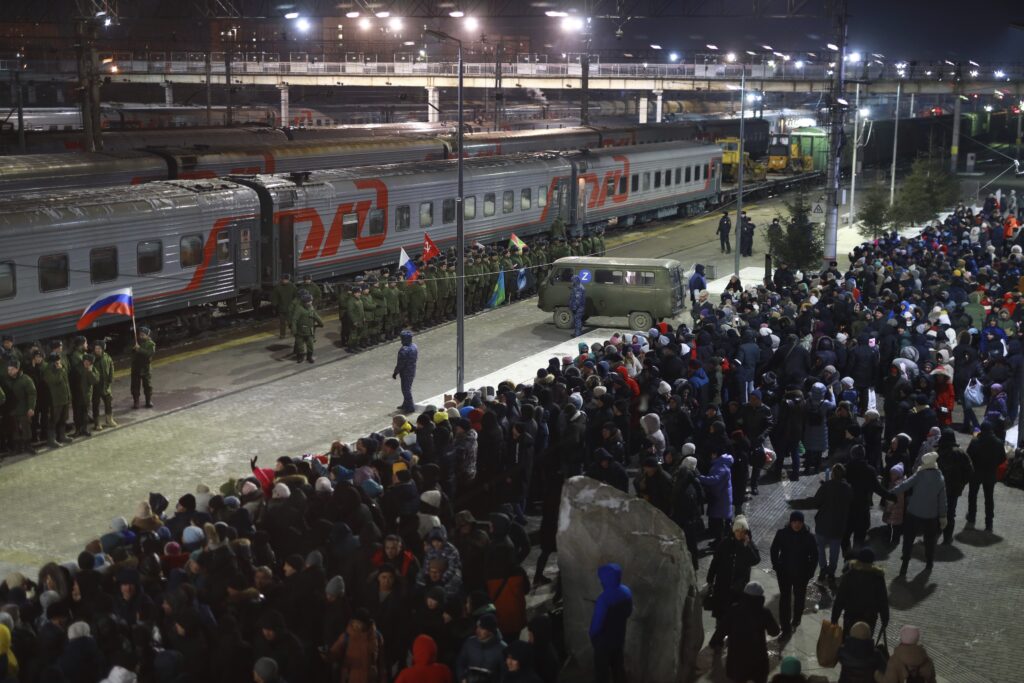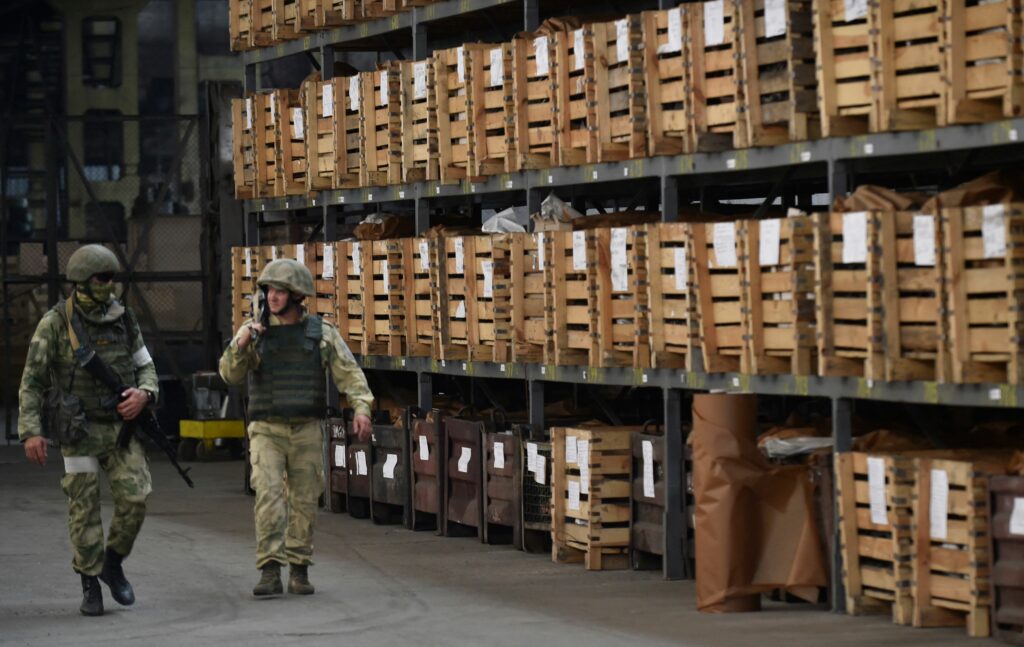Following one of the worst terror attacks on Russian soil, the authorities have struggled to piece together the explanatory narrative. Unfortunately, such facts may never be established.
With the death toll approaching 150, the siloviki have arrested roughly a dozen individuals purportedly connected to the attack, including the four surviving terrorists. However, questions remain as to the legitimacy of some of the arrests, as earlier warrants were issued for individuals who were nowhere near Moscow at the time, with no explanations for their inclusion provided. The four arrested attackers, however, have been matched with videos of the attack and swearing allegiance to the Islamic State (IS).
Similar to other terror attacks in Russia, it is questionable that the truth will ever be known. This seemingly doomed struggle to learn the truth is largely due to the political hijacking of the tragedy for the Kremlin’s own ends, structural problems in the security services, and the duality of radicalization in Russia.
Politicized narratives
Unsurprisingly, the Kremlin has moved to politically capitalize on the attack, although it struggled to establish a cohesive narrative at the beginning. iStories initially reported that the Kremlin had ruled out Ukraine and IS as perpetrators, making it embarrassing when the global jihadi organization eventually claimed responsibility for the attack. As of writing, it has yet to specify any province’s participation, but U.S. officials and analysts point to the involvement of IS-Khorasan Province (ISKP). The U.S.’s preemptive warnings, disregarded by Putin at the time, are now being reframed to open-endedly insinuate being the true perpetrator.
Despite all of the above, the Kremlin still attempts to tie the attack to Ukraine. In his eventual address, Putin claimed the terrorists were heading towards Ukraine and learned tactics via the Ukrainian authorities. Some sources spread narratives, devoid of any evidence, that natives of the North Caucasus were behind the attack. Any Ukraine-connected messaging has been undermined by Russia’s own ambassador to Belarus remarking how Belarussian security services stopped the four terrorists from crossing into Belarus, poking a large hole in the regime’s narrative.
The Ukraine narrative is blatantly invented, but it still spreads within regime-controlled media, while other fabricated evidence is still being «collected.» Regardless, the level of repression within Russia will undoubtedly increase over the coming weeks.
Self-sabotaging siloviki?
The security services have contributed to the struggle to understand the recent attack in three different ways: institutional distraction, heavy-handed contribution to radicalization, and general and investigative obfuscation.
For years, the authorities have told the public that any militancy has been extinguished. The full-scale invasion in 2022 furthered the denial of and distraction from terrorism, with the Kremlin instead focusing on the threat, both real and imagined, of the Ukrainian security services. While the pandemic and the onset of the full-scale war dampened militant activity in the North Caucasus, it appears to be headed back to its low-grade, but constant, presence. Not all of this militancy is connected to terrorism, but the North Caucasus has long maintained a more complex relationship with such organizations due to years of armed conflict.
More than just ignoring the threat of terrorism, the security services have actively contributed to radicalization. Widespread heavy-handed tactics are attributed as a key factor in youth support for IS. Particularly in the North Caucasus, the siloviki have also targeted Salafist mosques for harassment without any direct reason—part of the authorities’ general conflation of Salafism, Wahhabism, and terrorism. Finally, the treatment of migrants by the security services as prejudiced and violent, only growing worse as Russia faces manpower problems in its invasion.
With respect to evaluating terrorism potential, easily tracked indicators have been compromised by the authorities. Criminal charges related to the possession of firearms or narcotics and to financing terrorism are frequently used to frame people who have, in one way or another, run afoul of the authorities. The inability to track firearms is particularly concerning, as experts warn of an influx of unregistered weapons from the war. Terrorism-related charges are broadly used to fabricate cases and inflate crime statistics. In the North Caucasus, charges connected to terrorist attacks in 2000 continue to be utilized. This effectually renders tracking such criminal charges a useless endeavor for analysis.
In addition to the siloviki’s problems before the attack had even occurred, two directly related facts undermine the findings of any future investigation. First, the authorities’ slow reaction—whether due to Moscow’s notorious traffic or a much larger institutional incapability—means that any federal investigation will coverup any shortcomings in the response. The investigations into the Nord-Ost and Beslan attacks prove this. Second, the widespread use of torture in the interrogations guarantees that any information gathered from the arrested suspects cannot be taken as accurate. Together, these facts mean that, should an investigation occur, its findings cannot be trusted in almost any way.
Dual Radicalization and Mobilization
In Russia, terrorist organizations generally target two different populations for radicalization: natives of the North Caucasus and migrants from Central Asia. It is crucial to emphasize that a small minority radicalize and the stigmatization of these groups is based on an exaggerated sample size. The targeting of these groups for radicalization, however, is very deliberate.
The North Caucasus independence movements gradually transformed from secular to jihadi, as extreme actors gained influence. While Imarat Kavkaz (IK) dominated the region after 2007, the rise of IS and its establishment of a caliphate in the following years caused a split in the insurgency and sparked an exodus to Syria. The tempo of regional armed conflict has drastically fallen over the past decade, with the pandemic further dampening militant activity. These organizational downfalls have diversified the militant profiles in the North Caucasus. The last active IK cell was eliminated in January 2021. Religiously motivated lone wolves have become more common, although the frequent lack of information about militants’ motivations means the authorities provide the explanation. The North Caucasus’s most recent attack, at the beginning of March in Ingushetia, was the culmination of a yearlong search for a group who had sworn allegiance to IS. This apparent organizational decay, coupled with the variety of separatist-, religious-, or revenge-based motivations, makes it difficult to predict who has the willingness and capability to launch an attack in the heavily securitized region.
Over the past couple of years, IS and ISKP have increasingly targeted Russia with its propaganda. While ISKP has Central Asian roots, developing out of the Islamic Movement of Uzbekistan, the group’s attempts and ability to recruit Central Asians has hastened with the Taliban’s takeover of Afghanistan, which weakened operations targeting ISKP. The simultaneously growing foci on both recruiting Central Asians and attacking Russia go hand-in-hand. Central Asians are more likely to be radicalized in Russia than at home, not due to any particular proclivity, but rather the variety of socioeconomic conditions that can lead to «extreme rejection of society.» By the summer of 2022, ISKP was fundraising in Russia. While they bombed the Russian embassy in Kabul a few months later, the province’s attempts to launch an attack in Russia were unsuccessful until now.
What now?
In multiple ways, innocent people will bear the brunt of the political fallout from the attack. The anti-Ukraine narrative will manifest in even more missiles fired at Ukrainian cities. Central Asians, and non-ethnic Russians generally, will be targeted with greater prejudice and xenophobia. Already, there have been a number of attacks on and mob-style hunts for foreigners.
Russian society at-large now faces an increased potential for mobilization. Calls for the return of the death penalty for terrorists are additionally alarming, as it can clearly be utilized against those the regime has labeled «terrorists,» such as political opponents and the LGBTQ community.
Security policy, however, is unlikely to be corrected. Security will be tightened around Russia, particularly in regions considered prone to militancy risks, such as Ingushetia, but this will undoubtedly aim to repress society, not to target a real threat of terrorism.










